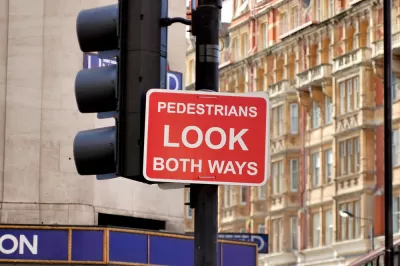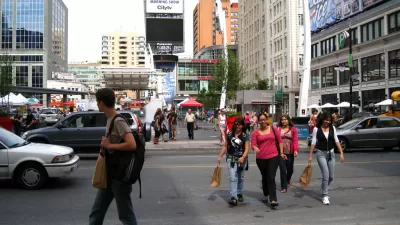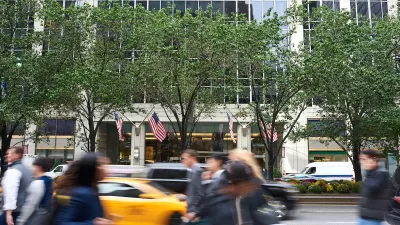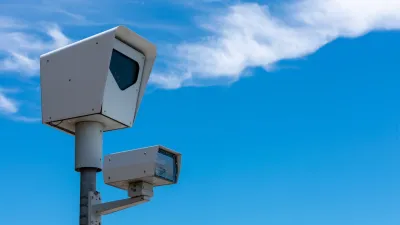Beginning in March, police will no longer be able to stop people for crossing the street outside of a crosswalk, a small component of reform intended to protect BIPOC from the historically discriminatory application of traffic laws.

Wyatt Gordon reports from Virginia, where a bill to decriminalize jaywalking was approved by the General Assembly earlier this year.
"Though it didn’t garner as much attention as other police reform measures during the special legislative session that ended this fall, a provision to decriminalize jaywalking in a pretextual policing bill from Delegate Patrick Hope, D-Arlington, means that come March 1, police will no longer be able to stop folks for the act of crossing the street outside of a marked crosswalk," writes Gordon.
"Criminal justice reformers called it a small step along the path to reducing encounters with the police, especially for people of color," adds Gordon, to assess the significance of the change in the law.
Gordon provides a lot more detail on what is means to decriminalizing jaywalking, and by extension the unofficial by highly damaging crime of "walking while black."
A 2019 audit of the New York Police Department revealed that officers issued 90 percent of “illegal or unsafe crossing” tickets to Blacks and Hispanics although those two groups make up just 55 percent of the Big Apple’s population. A ProPublica investigation in Jacksonville, Florida similarly found Black residents received 78 percent of all tickets for “walking in the roadway where sidewalks are provided” despite comprising just 29 percent of the city’s population.
Gordon also includes analysis of concerns that by legalizing jaywalking, the state might encourage risky or dangerous behaviors by pedestrians.
FULL STORY: Jaywalking decriminalization is coming, 100 years after the auto industry helped make it a crime

Planetizen Federal Action Tracker
A weekly monitor of how Trump’s orders and actions are impacting planners and planning in America.

Congressman Proposes Bill to Rename DC Metro “Trump Train”
The Make Autorail Great Again Act would withhold federal funding to the system until the Washington Metropolitan Area Transit Authority (WMATA), rebrands as the Washington Metropolitan Authority for Greater Access (WMAGA).

DARTSpace Platform Streamlines Dallas TOD Application Process
The Dallas transit agency hopes a shorter permitting timeline will boost transit-oriented development around rail stations.

Affordable Housing Finance 101
The financial intricacies involved in building affordable housing can be difficult to understand. This explainer breaks down the foundational concepts.

San Francisco's School District Spent $105M To Build Affordable Housing for Teachers — And That's Just the Beginning
SFUSD joins a growing list of school districts using their land holdings to address housing affordability challenges faced by their own employees.

Car-Centric LA Suburb Looks to a Train-Oriented Future
City leaders in Rancho Cucamonga, the future western terminus of the Brightline West rail line to Las Vegas, want to reimagine the city as a transit-oriented, pedestrian-friendly community.
Urban Design for Planners 1: Software Tools
This six-course series explores essential urban design concepts using open source software and equips planners with the tools they need to participate fully in the urban design process.
Planning for Universal Design
Learn the tools for implementing Universal Design in planning regulations.
Municipality of Princeton
Roanoke Valley-Alleghany Regional Commission
City of Mt Shasta
City of Camden Redevelopment Agency
City of Astoria
Transportation Research & Education Center (TREC) at Portland State University
US High Speed Rail Association
City of Camden Redevelopment Agency
Municipality of Princeton (NJ)





























